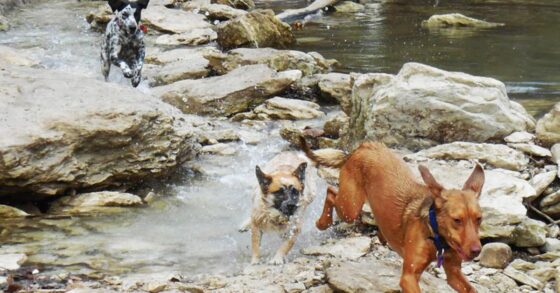The Leptospirosis Vaccine Should be Considered Core
Leptospirosis is a serious bacterial infection that poses risks to both dogs and humans. As a zoonotic disease, it can spread from dogs to people, creating significant public health concerns. Here’s why we emphasize vaccination and awareness:

What is Leptospirosis?
Leptospirosis can cause severe illness in dogs and, in some cases, can be fatal. It thrives in wet environments like puddles, creeks, and damp concrete, making exposure possible even in urban settings.
Why Vaccinate?
Leading veterinary organizations — including the ACVIM, WSAVA, and AAHA — now recommend the leptospirosis vaccine as a core vaccine for all dogs. Historically, only DA2PP and rabies vaccines were considered essential, but the rise in lepto cases has made this vaccine critical.
How Does Lepto Spread?
Dogs can become infected through:
-
- Contact with contaminated water, soil, or urine.
-
- Licking their paws after stepping in an area where an infected animal urinated.
-
- Exposure to the urine of infected dogs or wildlife, even indoors.
What Are the Risks?
-
- Early Detection: Lepto can be treated with antibiotics if caught early. Without treatment, it can be fatal.
-
- Severe Infections: Advanced cases may require hospitalization and treatments like dialysis, with the potential for lasting damage.
-
- Ongoing Risk: Even after treatment, infected dogs can shed the bacteria for weeks, endangering others.
Protecting Families
Infected dogs can spread the bacteria at home, putting people, especially children, at risk. For example, a toddler could unknowingly touch an area contaminated with infected urine.

Shelter Best Practices
In line with shelter best practices, we will not administer leptospirosis vaccines to dogs in our care. Instead, a waiver will be added to all dog adoptions recommending that adopters consult their regular veterinarian to discuss the lepto vaccine and determine the best plan for their pet.
Take Action
-
- Ensure clients understand the risks of leptospirosis and the importance of vaccination.
-
- Encourage adopters to follow up with their veterinarian to ensure their pets are protected.
